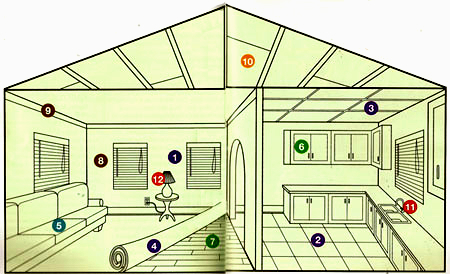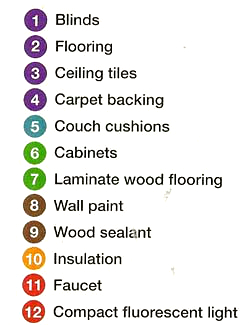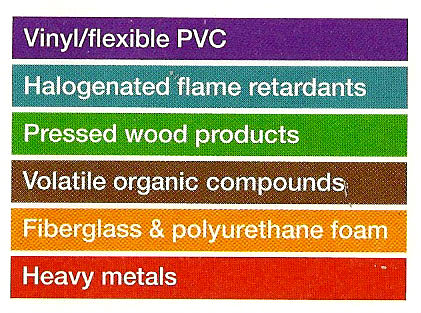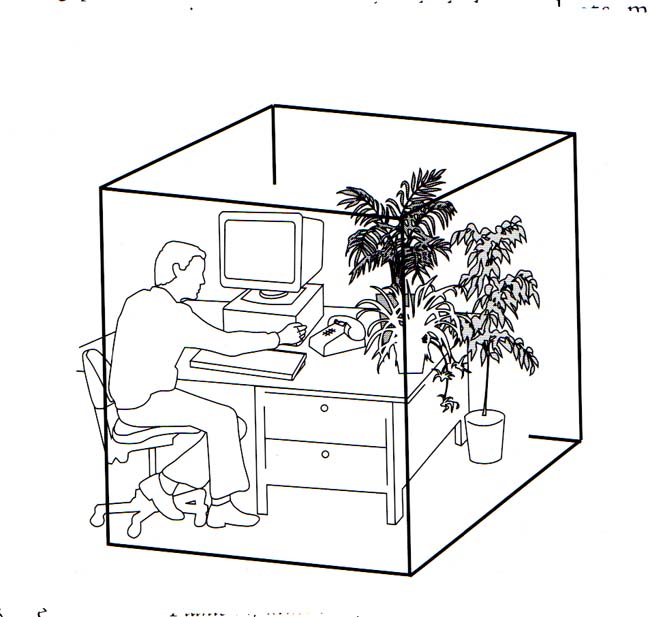Indoor Air Pollution - What is it?
We're acustomed to thinking indoor environments are safe from all the evils of outside air. Research has shown that the air your breathe indoors can be as much as 10 times more polluted than outside air!
What makes indoor air bad?
In the 1980's architects began sealing buildings from outside air to reduce energy costs. Since then, changes in building materials used for interiors has been taking place. Natural materials that were used to make furnishings in homes and offices have been replaced with fiberboard, plastics, and other synthetics - all held together with glues and resins.
Synthetic materials have become overwelmingly present in our homes and offices. Take a look around and consider just how many syntheic materials are surrounding you.
These synthetic materials create "off gases", many of which contain harmful toxins. Without venilation of outside air, these pollutants become concentrated. The air we breathe indoors could actually be making us sick!
Typical House
Unfortunatley synthetic materials are cheaper, making them a popular choice with builders. But are we recognizing the health hazards these products bring into our living and work environments?



| Household Material | Chemical Toxins |
| Inks,
Paints, Plastic, Dyes, Detergents, Synthetic Fibers |
Benzene |
| Foam Insulation, Plywood, Pressed Wood Grocery Bags, Fire Retardents, carpet, | Formaldehyde |
| Dry cleaning, Printing Inks, Paints, Laquers, Varnishes, Adhesives | Trichloroethylene |
| Chemical Toxins | Best Plants for Removing Toxin |
| Benzene | English
Ivy Dracaena Janet Craig Dracaena Wwarnecki Dracaena Lemon lime Dracaena Compacta Peace Lily |
| Formaldehyde | Dracaena
Janet Craig Dracaena Warnecki Dracaena Lemon Lime Bamboo Palm Rubber Plant Areca Palm Rhapis Palm Schefflera Golden Pothos Sansaveria |
| Trichloroethylene | Peace
Liliy Dracaena Warnecki |

How Clean is the Air You're Breathing?

